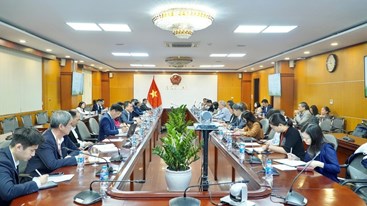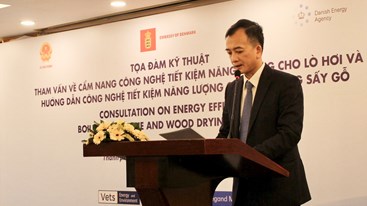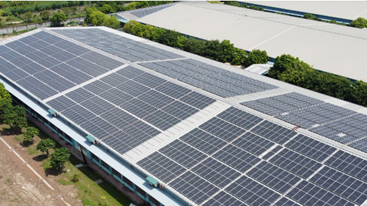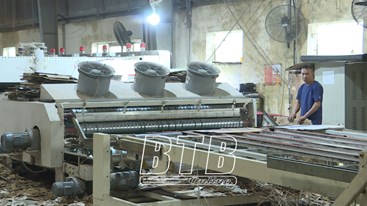Saturday, 18/05/2024 | 09:33 GMT+7
The project deals with a few environmental problems in one
swoop. As the dairy industry grows in

Not to mention climate change. According to a recent U.N. report, the farm-to-table carbon footprint of the dairy sector accounts for 4 percent of greenhouse gas emissions globally. About half of the emissions from milk are methane.
"There is a huge potential in this," said Michael
Wagner, marketing leader with GE Energy. "We are looking around the world
to expand." But biogas is nothing new. In
The government has big plans to use biogas to meet some
energy goals.
Development and Reform Commission. As with many other clean technologies, when
Elsewhere economic payoff may come later
Around the world, that is not always the case. The barriers to the expansion of biogas are about economics, not technology, and how long it takes for biogas projects to pay off varies country by country. In European countries with the best incentives, projects pay for themselves in four to five years, Wagner said.
But in the
"In
Some farmers are intrigued by digesters primarily to manage odor and manure issues, he said. They might view it as a side benefit to also generate power or heat for the farm. But for him to raise the funds needed to start a large project that sells power to the grid, like the Crave Brothers' operation does, better incentives are necessary.
"Economically, these projects need to make sense in order to build them," he said, noting that projects in the United States can take seven to 10 years to pay off. "Obviously, that's not great."
Chu sees U.S. lagging behind China in renewable incentives Others are taking a different approach. The developer Microgy Inc. runs what it says is probably the world's largest renewable natural gas plant in Huckabay, Texas. The company collects dairy cow manure and other agricultural organic wastes from nearby farms, purifies the biogas, and injects it into a commercial gas pipeline, where it is sent to California to be burned by Pacific Gas & Electric.

Michael Hvisdos, Microgy's executive vice president, said that there are several factors that boost the project. The co-digestion of other organic wastes increases gas production by several times. The gas it produces yields 8 to 10 megawatts, more electricity on average than the China facility. Gas prices can also provide some help, and so can the fact that a utility already has the power facility. Huckabay does not need GE's biogas turbines.
"We're sustainable without incentives," he said. But both he and Crave said better incentives, such as high renewable electricity rates, were needed if biogas projects were to gain ground here. As Microgy struggles to raise capital for new projects, what would also help would be a tax credit on par with what the solar, wind and ethanol industries already receive, Hvisdos said. Crave added that carbon offsets have yet to be a major driver behind projects.
The biogas field could be one more example of the ways the United States is falling behind China. Yesterday, Energy Secretary Steven Chu said that the United States is lagging behind China, which provides strong tax incentives for a host of renewable energy technologies. "We're not doing so well," Chu told an audience attending a clean jobs conference in Washington yesterday. "Time is running out."
It might not help for the Obama administration to sell the "green jobs" connection in this case, however. Crave often gets people telling him, "That's a shit job." He says it's true.
Hong Nhung








.jpg?w=367&h=206&mode=crop) Energy efficiency and conservation usage is an important aspect of the national energy development strategy
05/03/2024
Energy efficiency and conservation usage is an important aspect of the national energy development strategy
05/03/2024
 Challenges and Opportunities to promote energy efficiency market in Vietnam
Challenges and Opportunities to promote energy efficiency market in Vietnam
 The Ministry of Industry and Trade requests government agencies to coordinate in organizing Earth Hour 2024
The Ministry of Industry and Trade requests government agencies to coordinate in organizing Earth Hour 2024
 Consultation on Energy Efficiency Boiler Catalogue and Wood Drying Guideline
Consultation on Energy Efficiency Boiler Catalogue and Wood Drying Guideline
.png?w=367&h=206&mode=crop) Request for expression of interest - C2.1.13: Capacity Building on energy efficiency policies development
Request for expression of interest - C2.1.13: Capacity Building on energy efficiency policies development
 Son Ha Co., Ltd, applies energy efficiency and conservation measures
Son Ha Co., Ltd, applies energy efficiency and conservation measures
 Phuc Kien Co., Ltd., is effectively implementing energy-saving measures
Phuc Kien Co., Ltd., is effectively implementing energy-saving measures
 Request for expression of interest - C2.1.12: Independent monitoring of safeguards implementation
Request for expression of interest - C2.1.12: Independent monitoring of safeguards implementation